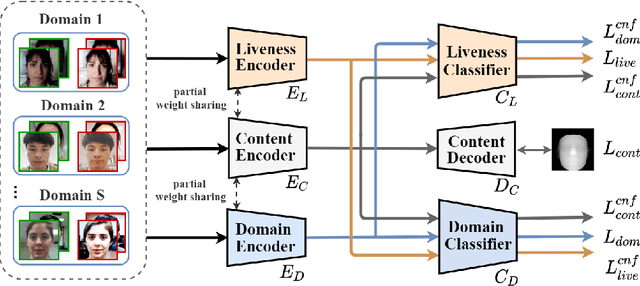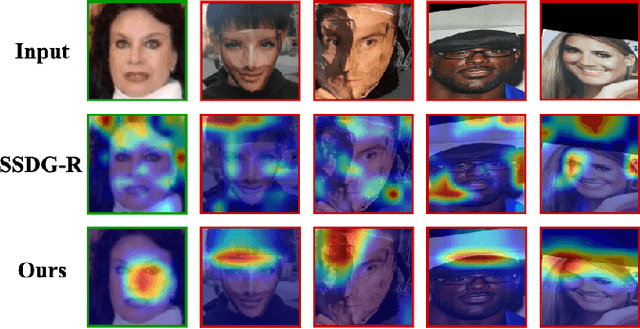Learning Facial Liveness Representation for Domain Generalized Face Anti-spoofing
Paper and Code
Aug 16, 2022



Face anti-spoofing (FAS) aims at distinguishing face spoof attacks from the authentic ones, which is typically approached by learning proper models for performing the associated classification task. In practice, one would expect such models to be generalized to FAS in different image domains. Moreover, it is not practical to assume that the type of spoof attacks would be known in advance. In this paper, we propose a deep learning model for addressing the aforementioned domain-generalized face anti-spoofing task. In particular, our proposed network is able to disentangle facial liveness representation from the irrelevant ones (i.e., facial content and image domain features). The resulting liveness representation exhibits sufficient domain invariant properties, and thus it can be applied for performing domain-generalized FAS. In our experiments, we conduct experiments on five benchmark datasets with various settings, and we verify that our model performs favorably against state-of-the-art approaches in identifying novel types of spoof attacks in unseen image domains.
 Add to Chrome
Add to Chrome Add to Firefox
Add to Firefox Add to Edge
Add to Edge